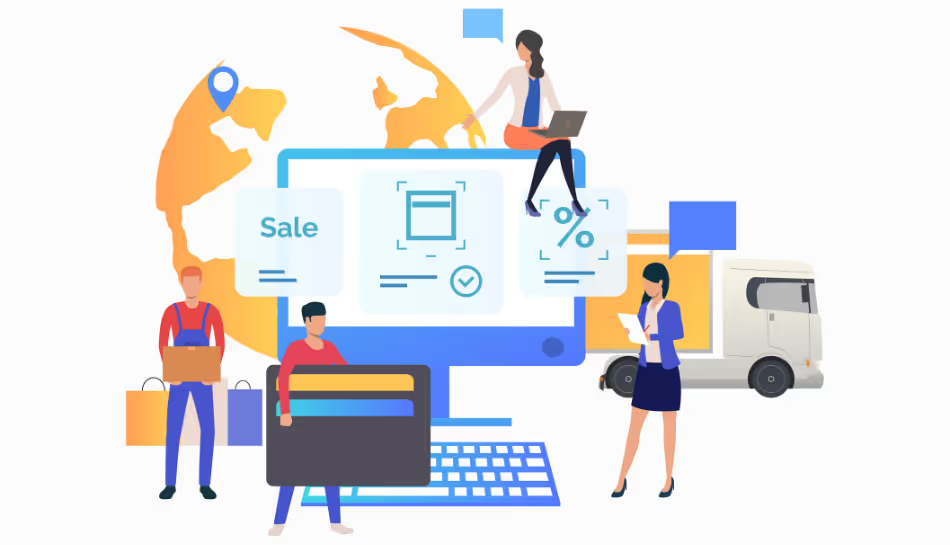As businesses grow, managing invoices manually or through spreadsheets becomes increasingly difficult. ERP helps avoid overstocking and stockouts by giving real-time visibility and control over inventory levels. Whether you're a freelancer, a startup, or a growing business, choosing the best software for billing and invoicing can streamline your operations, save time, and ensure better cash flow.
With countless tools on the market, from basic online invoicing software to full-featured accounting and billing software, it’s crucial to know which features matter most. The essential components of the best invoice software, particularly for small firms, are examined in this tutorial.
-
User-Friendly Interface
The most critical feature of any billing software is its ease of use. Business owners shouldn’t need advanced accounting knowledge to create or send invoices. The best billing software for small businesses offers intuitive dashboards, simple navigation, and a clean layout that lets users perform tasks without a steep learning curve. -
Customisable Invoice Templates
Professional-looking invoices help reinforce brand identity. Leading invoicing software for small business allows users to customise templates by adding logos, colour schemes, item descriptions, payment terms, and more. This personalisation improves credibility and helps clients recognise your brand instantly. -
Automated Invoicing and Recurring Billing
One of the biggest time-savers in any invoice management system is automation. You should be able to set up recurring invoices for repeat customers and automate invoice delivery schedules. These features are especially valuable in subscription-based businesses or service models where billing is done monthly. -
Integrated E-Invoice System
Modern businesses benefit from a built-in e invoice system that complies with regulatory standards. E-invoicing allows for real-time invoice generation and submission directly to government portals or client systems. The best invoicing software for small business often includes this capability, which helps improve transparency and speeds up payments. -
Online Payments Integration
The best billing software includes online payment options such as credit cards, UPI, bank transfers, or digital wallets. This enables clients to pay invoices directly through a secure payment gateway. Faster payment processing leads to improved cash flow, which is vital for small and medium-sized businesses. -
Real-Time Tracking and Reminders
Good invoicing and accounting software allows you to track the status of every invoice, whether it’s viewed, paid, overdue, or pending. Automatic payment reminders can be configured to reduce the need for manual follow-ups. This not only saves time but also increases payment timeliness. -
Expense and Tax Management
An ideal accounting and billing software solution should also handle basic expense tracking and tax calculations. GST-ready invoicing, automated tax application, and expense logging make compliance easier and reduce the chances of manual errors. -
Cloud-Based Access and Mobile Compatibility
In today’s business environment, mobility is a necessity. Online billing software offers cloud-based access, ensuring your invoicing data is available from any device, anytime. Whether you're in the office or on the move, being able to manage invoices from a smartphone or tablet improves productivity and responsiveness. -
Integration with Other Business Tools
Look for invoicing tools that integrate seamlessly with your invoicing and accounting software, CRM systems, payroll platforms, or ERP software. This ensures data flows smoothly across systems without needing manual data entry, improving efficiency and reducing errors. -
Scalability and Affordability
The ideal invoicing software ought to expand along with your company. It should offer plans or modules suited for freelancers, startups, and expanding companies alike. Most importantly, it should deliver value for money, especially for those looking for the best invoicing software for small business.
Final Thoughts
Choosing the right invoicing software is not just about sending bills. It’s about automating processes, improving customer relationships, ensuring compliance, and getting paid on time. Whether you're in search of the best invoice software for small businesses or a scalable invoice management system with built-in tax tools, these features should form the foundation of your selection.
With the right online invoicing software, small businesses can eliminate billing headaches and focus on what really matters, growth and customer satisfaction.


